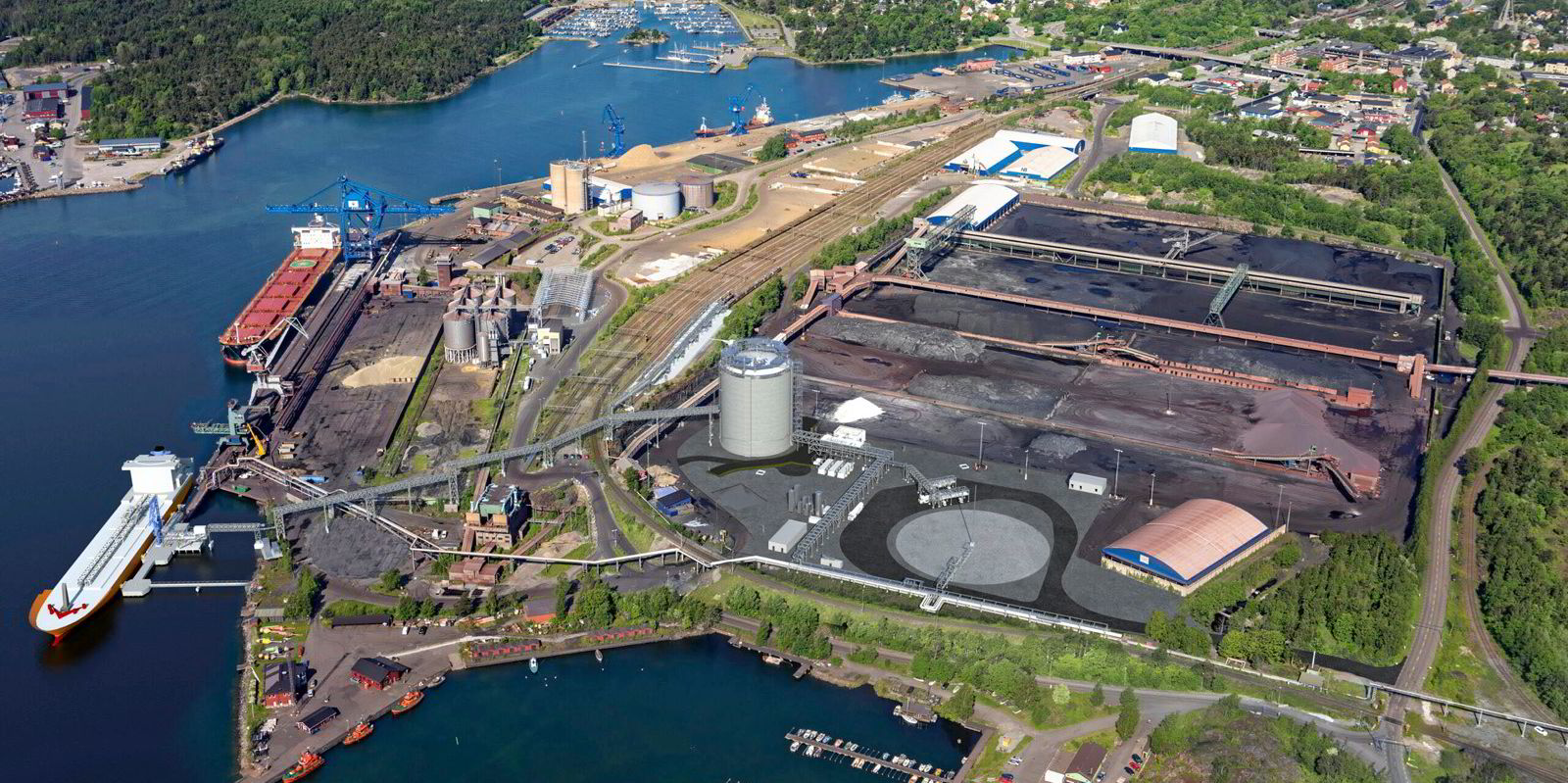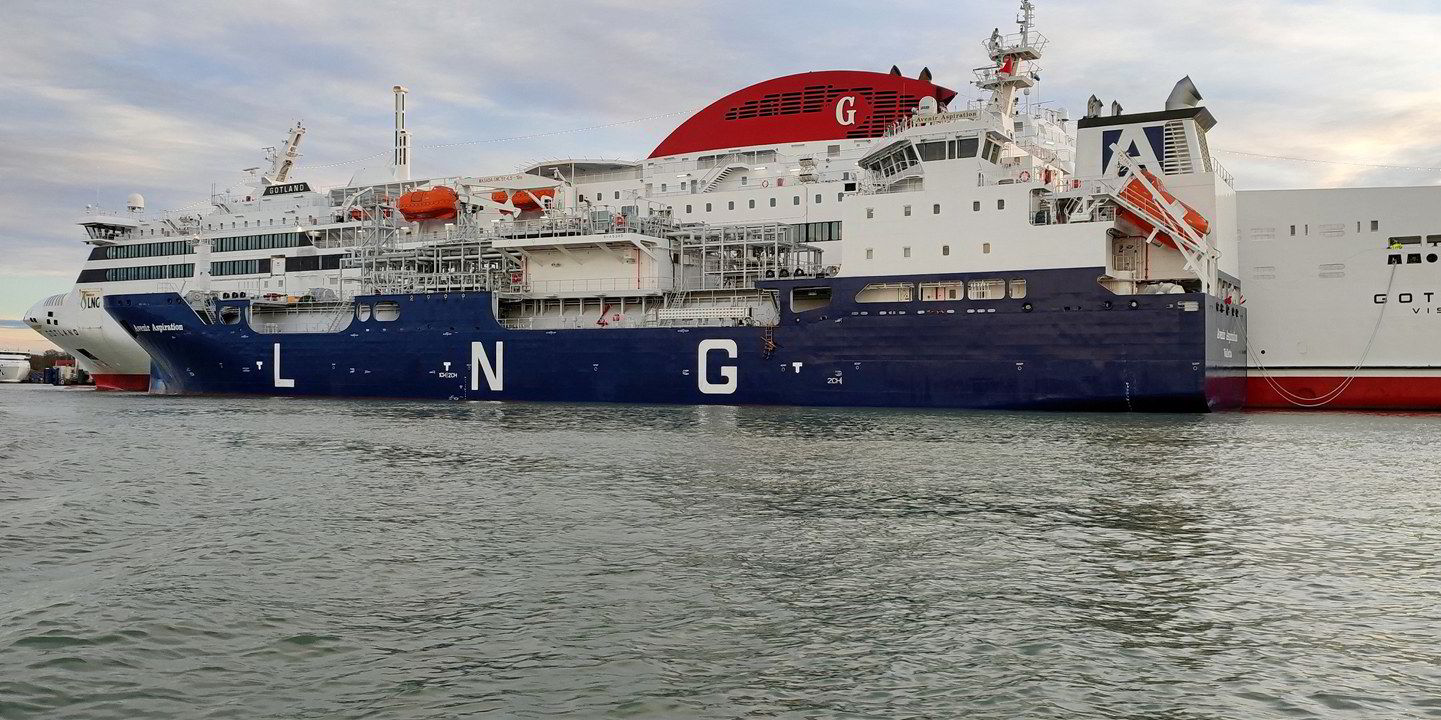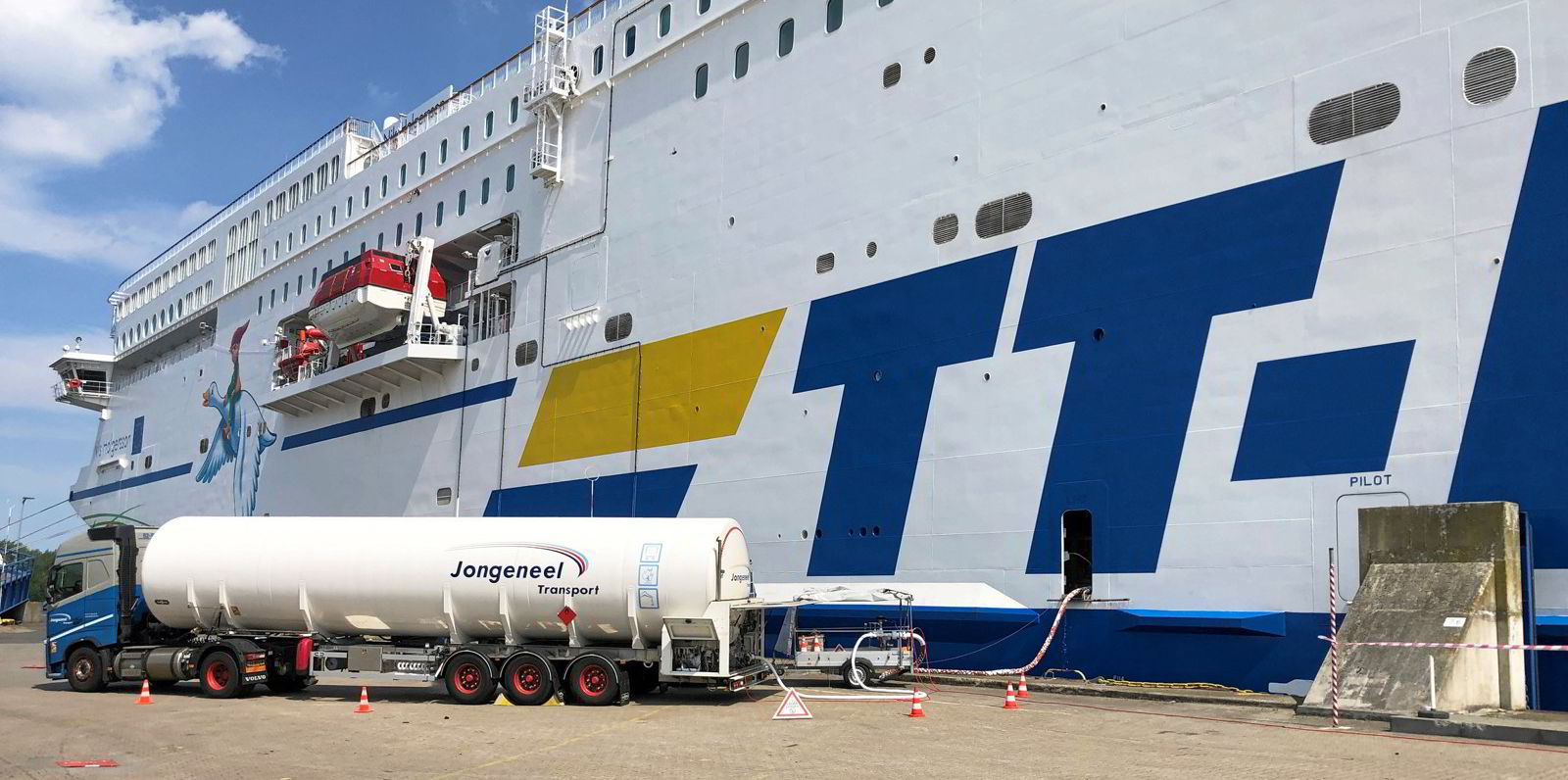Small-scale shipowner Avenir LNG plans to buy into a project to develop a terminal in Sweden that will be capable of supplying bio-LNG.
Avenir said it has signed a memorandum of understanding with Oxelosunds Hamn to develop and construct an LNG and bio-LNG Terminal in the Port of Oxelosund on the south-eastern coast.
Avenir intends to acquire 100% of the shares in the terminal project company OxGas, which is currently owned by Oxelosunds Hamn.
Avenir said OxGas has secured all environmental and construction permits required to build the facility.
The terminal will comprise a single full-containment atmospheric tank, natural gas delivery via regasification to a local pipeline network and the supply of LNG via two truck loading bays for wider distribution beyond the port.
The shipowner said the site is adjacent to key industrial consumers and has excellent connectivity to roads and rail.
It said the deal represents “a unique opportunity” to start construction of the terminal at a shorter lead time following completion of the detailed design and subject to due diligence and internal approvals.
Avenir plans to use its fleet of six small-scale LNG carriers to supply the terminal.
“OxGas will allow Avenir to consolidate some of its key bunkering customers in the region to be serviced from the terminal, which will free up capacity and increase throughput across the fleet,” the company said.
The two partners have also agreed to evaluate the development of a future energy hub for the transition from LNG and bio-LNG to renewable energy sources.
Avenir and the port will jointly evaluate a cost-competitive, safe and energy-efficient terminal to implement CO2 reduction schemes and bridge the development towards a fully renewable net-zero energy facility.
Avenir chief executive Peter Mackey said: “The challenges facing the European gas markets have reinforced Avenir’s commitment to investing in critical infrastructure and supply chains which enhance energy security in regions of stranded demand and further enable the switching to cleaner, greener and more sustainable forms of energy.”
His counterpart at Oxelosunds Hamn, Douglas Heilborn, said the tie-up will allow the port company to move to the next phase with its OxGas project.
“The demand for alternative fuels such as LNG/LBG [liquefied biogas] will grow in the shipping industry within the Baltic Sea,” Heilborn said.
“A key component for sustainable shipping is developed infrastructure for such fuels. Having access to terminals is important, as it will create opportunities for new shipping solutions.”





